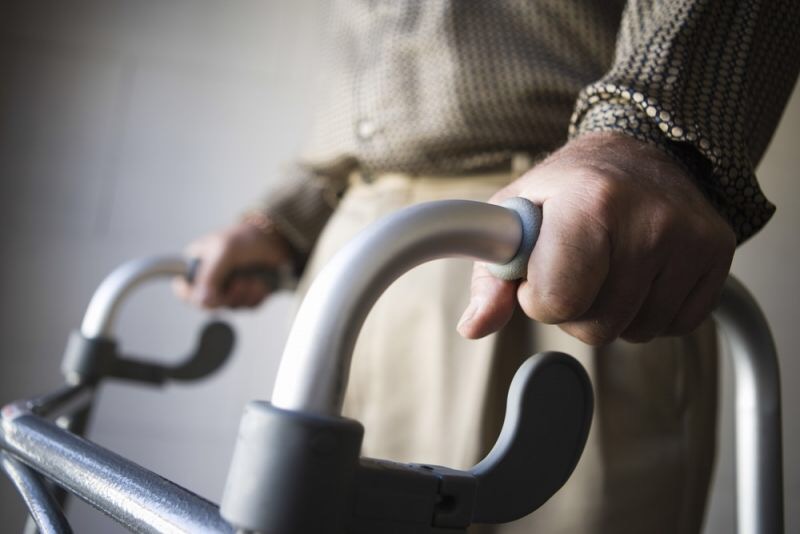Researchers who have developed a special walking frame fitted with sensors are looking for a group of older people so they can study their movement in detail.
The team, at the University of Salford, has developed the ‘Smart Walker’ walking frame as part of a project aimed at improving understanding how older people use walking aids and ultimately reducing the number of falls.The Smart Walker has been fitted with motion and force sensors and is used in combination with pressure-sensing insoles in the user’s shoes.
It monitors how the user transfers their body weight onto the frame as well as the movement patterns of the frame in relation to the user’s own foot movements.
The team, which has tested the device in the University’s Activities of Daily Living Suite, a facility designed to look like a real-world flat, has also used the Smart Walker in combination with motion analysis cameras to determine the stability of people using their frames.
This approach is the first time researchers have considered the user and their four legged walking frame as a combined system for which overall stability is calculated.
Dr Sibylle Thies, who leads the team from the University’s Schools of Health Sciences and Computing, Science and Engineering, says despite the widespread use of walking aids there is very little published research on how effective they are and what factors might play a role in the use of walking frames.
Their effectiveness may depend on how appropriately they have been prescribed by medical staff, how the individual was trained in their use and how and where they are being used in everyday life.
She said: “Until now, there has been no robust method to assess the stability of walking frame users, and no studies have looked closely at the stability of people when using walking frames in their own home or in the street.”
Now, the team wants to use the Smart Walker to develop a better understanding of the effectiveness of walking aids and they plan to look in detail at a group of older people who use four-legged ‘pick up frames’ – Zimmer frames without wheels.
Over the next year they hope to recruit up to 40 pick-up frame users from Greater Manchester to study them using the device at the University or in their own homes.
They will arrange all transport to and from the University – as well as providing lunch, tea and biscuits.
Dr Thies said: “We understand that coming to the University, an environment they are entirely unfamiliar with, or letting research staff enter their own homes, may be a huge barrier.
“A lot of older people might feel very nervous about getting involved in this, but we will make it as easy as possible for them and can talk to them beforehand about exactly what we’re doing. It isn’t anywhere near as daunting as they might think – we had one lady who came in to do the study recently who thoroughly enjoyed the experience!”







